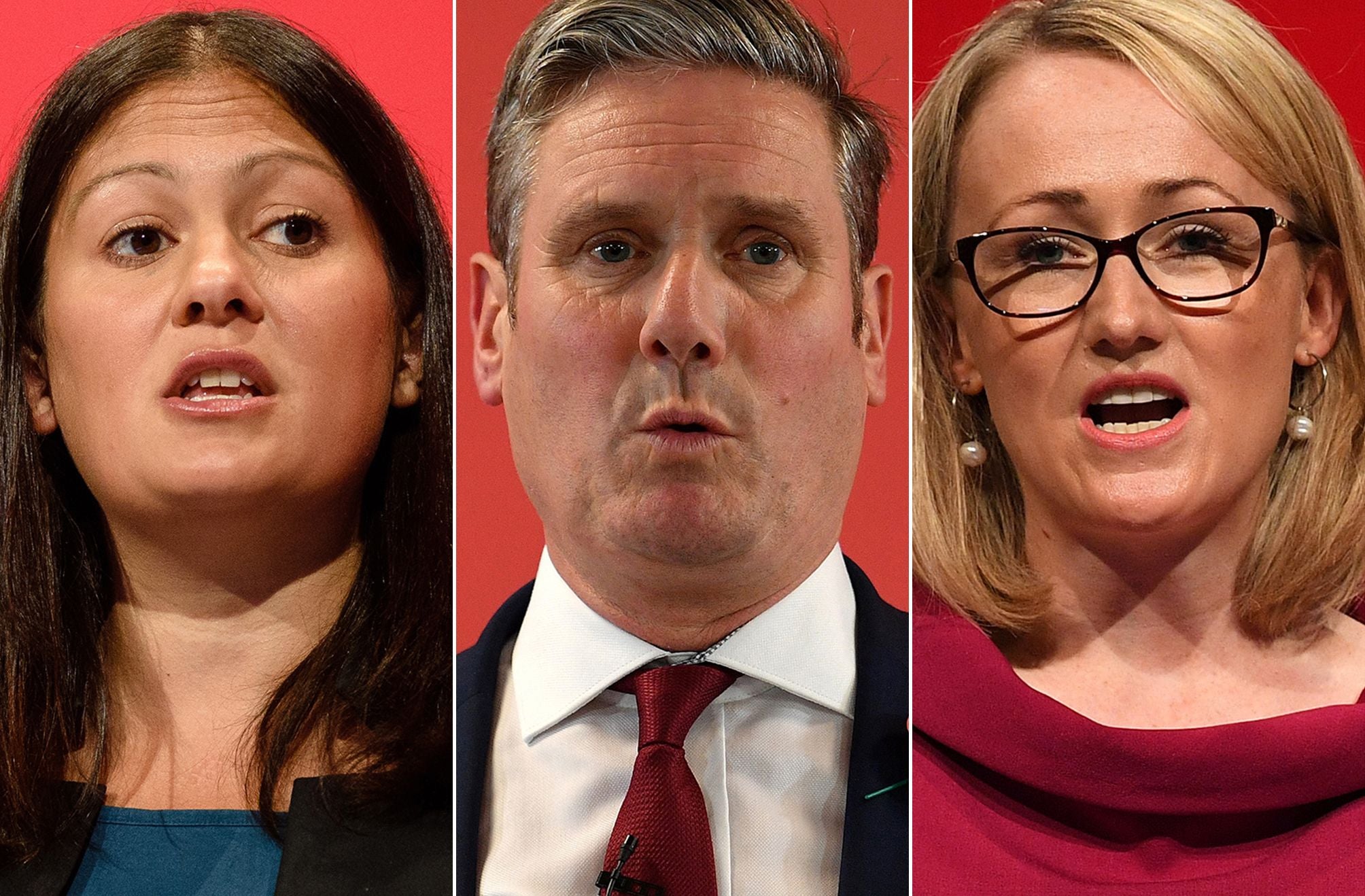Who can we expect to see in the new shadow cabinet?
The next Labour leader – likely to be Keir Starmer – will need to forge alliances across the party, and that starts with the front bench, writes Sean O'Grady


If British politics has taught us anything in recent days, it’s that leaders aren’t the be-all and end-all. No doubt the heir-presumptive, Sir Keir Starmer, will have a critical, even the critical, role in trying to steer Labour back to power; but so will those around him, most of whom he will be appointing.
There are crucial public-facing roles to fill, and none more so than the shadow chancellorship. The economy is usually central to any party’s success, and Labour has always faced a particularly tough examination of its policies from sceptical elements of the press.
Shadow chancellors such as Harold Wilson in the 1950s, John Smith in the 1980s and Gordon Brown in the 1990s, and indeed John McDonnell more recently, helped burnish their party’s credentials, or at least helped it perform better than might have been otherwise expected. Others left less of a mark – and the most recent, such as Alan Johnson, Ed Balls and Chris Leslie are, fairly or not, pretty much forgotten.
Starmer has some talent to choose from. He has, so the rumours go, rejected the idea of giving this big job to any of the other leadership contenders, ruling out Rebecca Long-Bailey and Lisa Nandy. They will get “top” jobs in, say, climate change and regional renewal, but won’t hold the key to the next general election. He also appears disinclined to bring back well-qualified figures from the past to become shadow chancellor, such as experienced former cabinet ministers Yvette Cooper, Hilary Benn or even Ed Miliband.
Instead, the job spec likely demands someone on the soft left that carries little baggage from the last Labour government or the Corbyn experiment. That would would point to the widely tipped Rachel Reeves. Currently chair of the Commons Business Select Committee, she will offer a fresh face and new ideas, though she may struggle to build much of a profile during the coronavirus crisis. She also has a now impressive opponent in Rishi Sunak, rising Tory star. He has, after all, already stolen many of Labour’s clothes on huge public spending and borrowing.
So far, in choosing his close advisers, Starmer seems to favour a much older, more traditional approach – pre-Corbyn and pre-New Labour – of balancing left, right and centre. His hiring of Simon Fletcher and Kat Fletcher from the left, but Matt Pound from the right (crudely speaking) would substantiate his apparent determination to end the internecine feuding and exclusionary politics. Don’t forget that Starmer urged his followers to respect both Tony Blair and Jeremy Corbyn during the leadership election.
Still, there are limits, and Corbyn’s offer to take up the role of shadow foreign secretary will likely be politely declined. The forthcoming EHRC report on antisemitism in the party will give Starmer all the cover he needs for drawing a line under the past. Emily Thornberry seems happy to carry on in the foreign affairs role.
The prospective deputy leader Angela Rayner will also be a prominent personality for Labour in the 2020s, but she may have to concentrate on internal party business and reforms for a while, rather as John Prescott did in the Blair era. Rosena Allin-Khan and Ian Murray have also given a good account of themselves during the deputy leadership contest.
As a doctor now back in the NHS, Allin-Khan might be a bold choice for the now-higher-profile health brief, with a promotion also set to be offered to Jonathan Ashworth who has performed well in this crisis. (With Diane Abbott’s imminent retirement from the front bench, the job of shadow home secretary is up for grabs). As Labour’s sole Scottish MP, Murray’s job description writes itself. Labour will find it difficult to form a government without a Scottish revival.
Dawn Butler is another deputy leadership contender figure with potential and a claim for promotion; though how Starmer will deploy the force of nature that is Jess Phillips, once an outside shout for leader, is a tougher call.
There is set to be a clear-out of some of the less well known and more austere Corbynites, most notably apparatchiks Seumas Milne and Karie Murphy. Yet there won’t be a purge or, indeed, any lurch back to the Blair-Brown years. Starmer has already pledged to keep some of the flagship policies from the 2019 manifesto, and, even if he wanted to turn the clock back to 1997 he would have to contend with Momentum, the wider, broadly socialist, membership and Len McCluskey, leader of Unite.
More than most Labour leaders, Starmer will need to build bridges and forge alliances right across his party. The signs are that he knows that full well.
Join our commenting forum
Join thought-provoking conversations, follow other Independent readers and see their replies
Comments